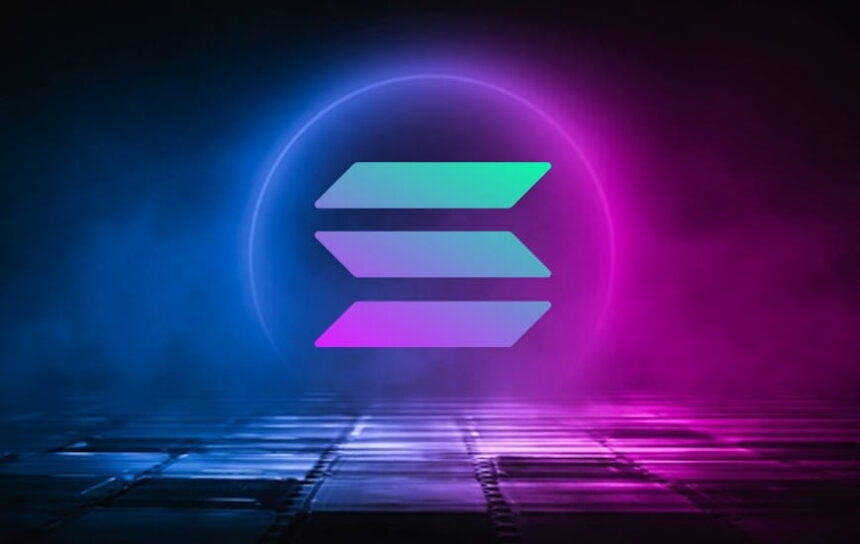ALPENGLOW APPROVED BY SOLANA COMMUNITY
The Solana community has voted decisively in favor of the much-anticipated Alpenglow upgrade, marking a significant step towards the most substantial technical transformation in its history. As reported by Solana Status on X, an impressive 98.27% of SOL stakers who voted supported the proposal, while only 1.05% were against it and 0.36% abstained. Overall, 52% of the network’s stakers were involved in the voting process. This upgrade will introduce a new consensus protocol aimed at significantly enhancing transaction finality and overall network efficiency. Central to Alpenglow are two new components, Votor and Rotor, which will take the place of the current systems, Proof-of-History and TowerBFT. Proof-of-History currently timestamps transactions to maintain their order without affecting network speed, while TowerBFT manages the voting process among validators. Alpenglow will revamp both of these systems. Votor is expected to reduce transaction finality from over 12 seconds to approximately 150 milliseconds, providing near-instantaneous confirmation for users. Rotor, which will be rolled out later, will decrease data transfers between validators, an essential upgrade for high-demand areas like decentralized finance (DeFi) and blockchain gaming. With the approval secured, Solana is now setting the stage for the upgrade, a milestone poised to enhance speed, resilience, and scalability throughout its ecosystem. — Margaux Nijkerk Read more.
EF TO SELL 10K ETH OVER NEXT FEW WEEKS
The Ethereum Foundation (EF) announced in a post on X on Tuesday that it plans to sell 10,000 ETH through centralized exchanges over the coming weeks to fund research and development efforts, ecosystem grants, and related donations. Based on CoinMarketCap data, the ETH will be valued at approximately $43 million at Tuesday’s pricing. “Conversions will take place over multiple smaller orders, rather than as a single large transaction,” the EF stated in its post on X. This announcement follows the EF’s new treasury policy rollout in June, which caps annual operational spending (opex) at 15%, establishing a multi-year reserve buffer while promoting a gradual shift towards more frugal spending long-term. In July, the foundation had also sold another 10,000 ETH to SharpLink Gaming, marking the online casino marketing firm as the first publicly traded company to purchase ETH from a key entity within the network. — Margaux Nijkerk Read more.
A CHAT WITH BRUCE LIU ON OP_CAT
In discussion, Bruce Liu stated that without OP_CAT, Bitcoin is as “useful as a jumbo jet without wings,” possessing capabilities far beyond its current limitations but grounded while Ethereum and Solana thrive. Liu, founder of OPCAT_Labs, believes a single opcode, OP_CAT, could expedite Bitcoin’s evolution from merely static digital gold to programmable money that competes with other layer-1 blockchains. OP_CAT is an opcode that has been disabled in Bitcoin’s code but, if reactivated, would enable developers to concatenate data within scripts, thus unlocking new capabilities ranging from vaults and covenants to decentralized exchanges and zero-knowledge proofs. Liu indicated that the Bitcoin blockchain could achieve a level of programmability comparable to Ethereum or Solana if OP_CAT were reactivated. “OP_CAT is not new code. It was never erased, just commented out and disabled. We are not introducing my opcode or anyone else’s. It belongs to Satoshi,” Liu explained in an interview during BTC Asia in Hong Kong. — Sam Reynolds Read more.
HOLESKY SUNSET IS COMING AFTER FUSAKA UPGRADE
A new series of Ethereum testnets will be taking the place of Holesky, the previously major staging area now set to shut down after two years of operation. The phase-out will occur two weeks after the Fusaka upgrade is completed later this year, at which point client and infrastructure teams will stop providing support. The Fusaka upgrade aims to make Ethereum rollups more affordable and quicker by distributing the “data storage work” more evenly among validators. Launched in 2023, Holesky served to rigorously test Ethereum’s proof-of-stake framework at scale and quickly became the largest public testnet, allowing thousands of validators to trial upgrades prior to their deployment on the mainnet. Significant milestones, including the Dencun and Pectra upgrades—which improved transaction costs and validator efficiency—were initially tested on Holesky. However, issues began to surface as the network aged. Following Pectra’s activation in early 2025, Holesky experienced “inactivity leaks,” a term that describes a considerable number of validators going offline, leading to a backlog for those wishing to exit. This caused lengthy queues that rendered it impractical to test the complete validator lifecycle. For developers requiring quick feedback loops, Holesky had become more of an obstacle than a resource. — Shaurya Malwa Read more.
- Digital asset investment firm Galaxy Digital (GLXY) is transitioning its stock onto blockchain frameworks as equity tokenization gains momentum. The Nasdaq-listed company has collaborated with blockchain firm Superstate to offer its Class A common stock as tokens on the Solana network via Superstate’s Opening Bell platform. This setup maintains the full rights associated with SEC-registered equity while allowing investors to manage and transfer shares on-chain, according to the firms. The tokenization of traditional assets has been on the rise in the financial sector as firms explore the potential of moving equities, bonds, and money-market funds onto blockchain infrastructure. Numerous tokenized equity products have emerged in recent months, primarily targeting EU investors, including those offered by Robinhood, Gemini with Dinari, and xStocks by Kraken and Backed Finance. However, some offerings raised concerns regarding limited shareholder rights and fragmented regulations. Unlike synthetic or wrapped tokenized stocks that function without issuer involvement, Galaxy’s shares are issued directly on-chain and managed by Superstate as the transfer agent, which instantly records changes to the shareholder register as tokens are transferred between verified wallets. This approach aims to meld compliance with blockchain attributes such as fast settlement, transparency, and 24/7 availability, according to the firms. — Kristzian Sandor Read more.
- Ondo Finance has unveiled its tokenized equity platform, dubbed Ondo Global Markets, granting non-U.S. investors access to over 100 U.S. stocks and exchange-traded funds (ETFs) on-chain. Announced initially in February, the tokenized equities have now launched on Ethereum and are backed by securities held by U.S.-licensed broker-dealers. The offering includes crypto token versions of Apple (AAPL), Nvidia (NVDA), and the QQQ ETF, among others. Investors from Asia-Pacific, Europe, Africa, and Latin America can mint and redeem shares around the clock during trading days, with access to underlying exchange liquidity. However, this service is not available for U.S. users. The tokens are structured to move freely between wallets, exchanges, and decentralized finance (DeFi) protocols. The firm has also teamed up with BitGo, Ledger, Chainlink, and other infrastructure providers to facilitate the launch. — Kristzian Sandor Read more.
- European Central Bank (ECB) President Christine Lagarde called on European Union (EU) lawmakers to enforce strict requirements and protections on foreign stablecoins.
- Lagarde contended that these stablecoins should adhere to the bloc’s regulatory frameworks before operating within the EU. She made these remarks during a speech at a European Systemic Risk Board (ESRB) conference in Frankfurt. The ECB president warned that in the event of a stablecoin run, investors would be inclined to redeem in jurisdictions with stronger safeguards, such as the EU, where Markets in Crypto-Assets (MiCA) regulation prohibits redemption fees, potentially depleting local reserves. “The risk of liquidity mismanagement across jurisdictions is one we have seen before. Banking groups, for example, are already mandated to ensure that reserves are accessible within the part of the group where and when they are necessary,” Lagarde stated. — Jamie Crawley Read more.
- The U.S. government has started leveraging blockchains to distribute vital economic data, commencing with the U.S. Department of Commerce’s publication of gross domestic product (GDP) figures, which was termed a “proof of concept” for future endeavors. “We are making America’s economic truth immutable and globally accessible like never before, solidifying our position as the blockchain capital of the world,” stated Secretary of Commerce Howard Lutnick in an announcement regarding this new data distribution approach. To avoid favoring specific blockchain protocols, the department released last week’s data across various platforms including Bitcoin, Ethereum, Solana, TRON, Stellar, Avalanche, Arbitrum One, Polygon PoS, and Optimism, specifying the transaction hashes for each in its announcement. The agency also disseminated the data via Chainlink and Pyth and acknowledged the assistance of exchanges like Coinbase, Gemini, and Kraken. — Jesse Hamilton Read more.




















